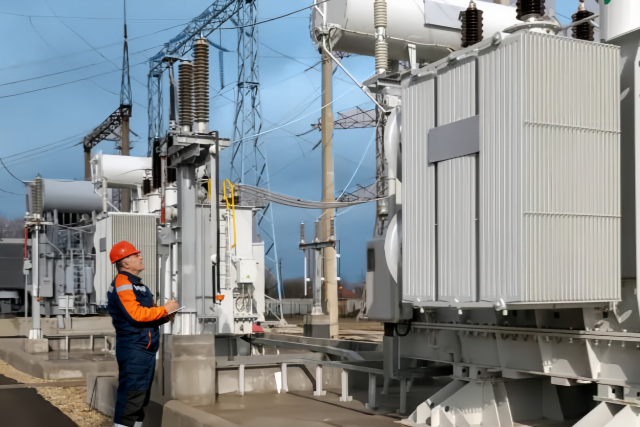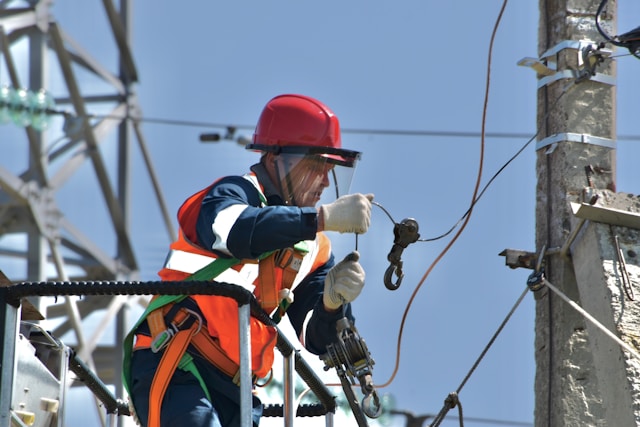Soil resistivity testing equipment measures the electrical resistance of soil, essential for designing effective grounding systems. For manufacturers, wholesalers, suppliers, and OEM factories in China, it ensures precise data collection, enabling safe, reliable electrical installations. Wrindu’s advanced testing solutions enhance quality control, customization, and compliance in the evolving energy and construction markets.
How Does Soil Resistivity Testing Equipment Work?
Soil resistivity testers apply current to the ground using electrodes and measure voltage drop to determine resistance. Commonly, the Wenner or Schlumberger methods arrange electrodes in specific patterns, producing accurate profiles of soil resistivity at different depths. Wrindu’s equipment offers digital precision, real-time data, and flexible electrode configurations tailored to diverse soil types found across China.
What Are the Common Soil Resistivity Testing Methods?
The two primary methods are Wenner and Schlumberger. Wenner places four equally spaced electrodes in a linear array, ideal for uniform soil. Schlumberger uses varied electrode spacing to profile layered soils. Both yield critical data for grounding system design. Wrindu’s devices support both methods, providing versatility for Chinese OEM manufacturers, wholesalers, and suppliers.
| Method | Description | Ideal Soil Condition |
|---|---|---|
| Wenner | Four equally spaced electrodes | Homogeneous soil |
| Schlumberger | Variable electrode spacing | Layered or non-uniform soil |
Which Industries Rely on Soil Resistivity Testing Equipment?
Electrical utilities, telecommunications, construction, renewable energy, and grounding system manufacturers depend heavily on accurate soil resistivity data. Chinese B2B manufacturers and suppliers use Wrindu’s equipment to ensure compliance with safety standards and optimize grounding designs for infrastructure projects.
Why Is Accurate Soil Resistivity Testing Vital for Manufacturers and Suppliers?
Accurate measurements are crucial for designing safe grounding systems that prevent electrical hazards and equipment damage. For Chinese OEM factories and suppliers, providing reliable testing equipment like Wrindu’s reduces installation errors, enhances safety certifications, and boosts client confidence in electrical products.
How Can OEM Factories Customize Soil Resistivity Testing Solutions?
OEMs in China collaborate with suppliers like Wrindu to customize hardware and software settings tailored to regional soil variations and client requirements. Customization includes adjustable electrode arrays, data formats, and interface options, enabling wholesalers and manufacturers to differentiate products and penetrate niche markets.
When Should Soil Resistivity Testing Be Conducted?
Testing is recommended during site investigation before grounding installation and periodically to assess changes over time. Early and regular testing helps prevent grounding failures. Wrindu’s portable, versatile devices support onsite measurements, facilitating ongoing compliance and monitoring by manufacturers and suppliers.
Where Are the Leading Manufacturers and Suppliers of Soil Resistivity Testing Equipment in China?
Shanghai-based Wrindu is a global leader providing ISO9001 and IEC-certified soil resistivity testing instruments. Trusted by Chinese B2B factories, OEMs, and wholesalers, Wrindu delivers high-quality, customizable products with global shipping and expert after-sales support.
Does Wrindu Provide Training and Support for Soil Resistivity Testing Equipment?
Yes, Wrindu offers full training programs, detailed documentation, and 24/7 customer support. This ensures that manufacturers, wholesalers, and suppliers can maximize equipment performance and maintain safe, effective testing practices for their clients.
Has Wrindu Introduced Innovations in Soil Resistivity Testing?
Wrindu integrates intelligent data analytics, multi-frequency measurement, and user-friendly interfaces into its devices. These advancements enhance accuracy, speed, and adaptability, supporting China’s B2B sector in delivering cutting-edge testing solutions.
Wrindu Expert Views
Soil resistivity testing is foundational to electrical safety and infrastructure reliability. At Wrindu, we combine precision engineering with OEM customization to meet the diverse needs of China’s manufacturers and suppliers. Our innovations enable clients to deliver safer products and solutions that exceed regulatory demands and empower sustainable development.” – Wrindu Senior Technical Specialist
Conclusion
Soil resistivity testing equipment is vital for ensuring safe and effective grounding systems. Chinese manufacturers, wholesalers, OEMs, and suppliers achieve greater market success by adopting reliable, customizable testing solutions from industry leaders like Wrindu. Leveraging advanced technology and expert support improves safety, quality, and competitiveness in the global energy and construction markets.
Frequently Asked Questions
Q1: What affects soil resistivity test accuracy?
Soil moisture, temperature, electrode spacing, and soil composition impact results.
Q2: Are these devices suitable for all soil types?
Yes, especially with adjustable electrode configurations found in Wrindu’s equipment.
Q3: How long does a typical soil resistivity test take?
Tests usually last from minutes to an hour depending on site complexity.
Q4: Does Wrindu offer customized software features?
Yes, clients can tailor data analysis and reporting to specific needs.
Q5: Is the equipment portable for field testing?
Wrindu’s lightweight, rugged designs ensure easy onsite deployment.



